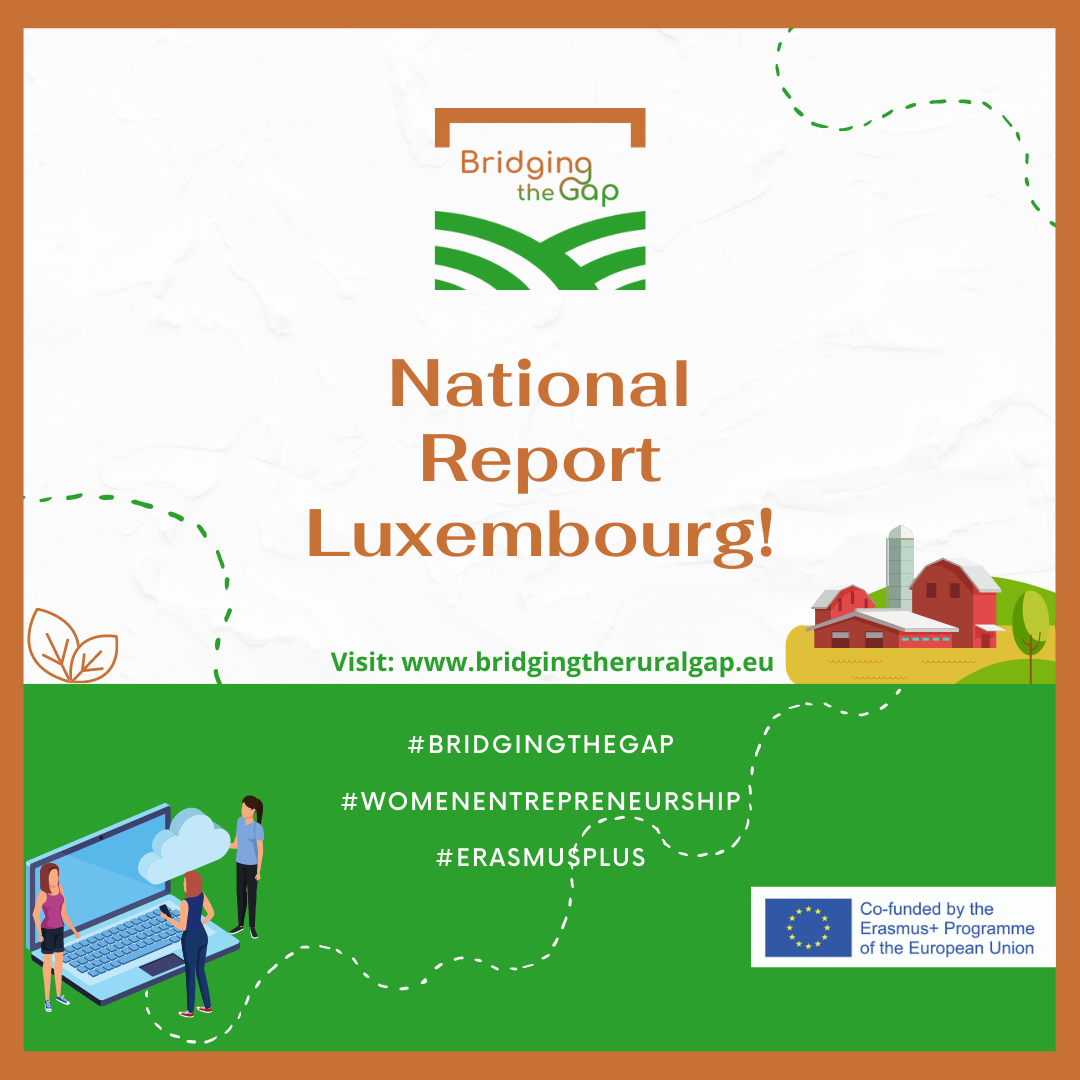National Report Luxembourg!

Luxembourg is a country with particular demography, with a large majority of its population living in cities. Most of the companies are located in Luxembourg City, this obviously influences the training opportunities, which are mostly in urban areas. Moreover, a large part of the population already possesses basic digital skills. This is reflected in the specific needs in terms of digital skills for a majority of women entrepreneurs.
In Luxembourg, we are able to say that two target categories stand out when it comes to women entrepreneurs:
First, we have women from rural areas who already have digital and entrepreneurial skills due to their education and employment in the largest and most important city in Luxembourg.
They generally master several of the country’s official languages, such as French and German but also English. They express their need for more specific and advanced digital skills (e-commerce, marketing/brand management, UX-UI design…)
Then we have a second category, women from rural areas who are mostly older or with an immigrant background, with a possible language barrier, or who always have been employed in rural areas. They do not necessarily have access to efficient internet connectivity and have not learned to master the computer tool in their school curriculum. Therefore, these women are forced to go to the city to learn these digital skills and entrepreneurship due to the lack of offers in the countryside. According to the feedback from our trainers, they need more basic skills such as online security and problem solving or even mastering information and data online as well as using online meeting tools.
If we concentrate on entrepreneurial skills, the women from these two target groups wish to acquire basic knowledge of starting a business, particularly from an administrative point of view (accounting, VAT and social security taxes management, etc). But they are also looking for basic digital skills in terms of communication, especially on how to create a website, to use social media, or to create and manage a LinkedIn profile for networking purposes.
For Luxembourg, we think it would be important to consider offering short blended learning courses (both online and face-to-face) on very specific topics related to digital skills.
There is also the question of the language for the content of these training sessions. Like we explained before in this desk research, some women can not have access to some training due to language barrier. It might be wise to propose content in French for the rural areas in the south of Luxembourg and in German or Luxembourgish for the rural areas located in the north. Proposing content in different languages based on the region could help to reach more women from rural areas.
We have also noticed that since the beginning of the Covid19 crisis, even people with a low level of digital skills have been forced to take an interest and will be inclined to improve their skills.
This leads us to believe that this type of training could push people from rural areas and especially women to participate more in this type of initiative if they are targeted.




